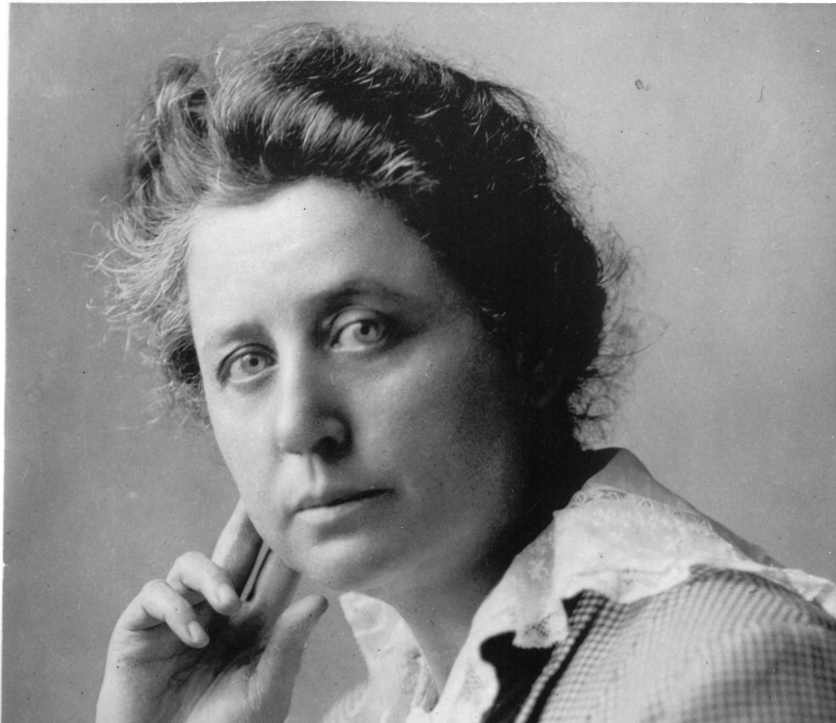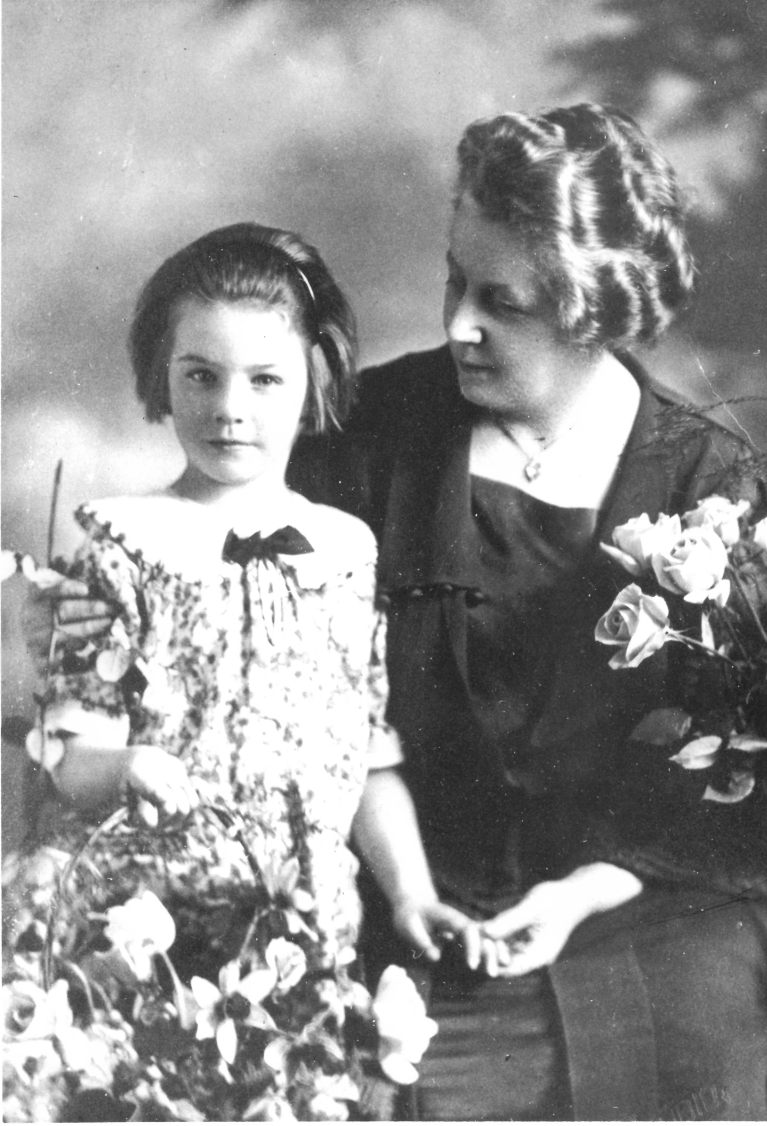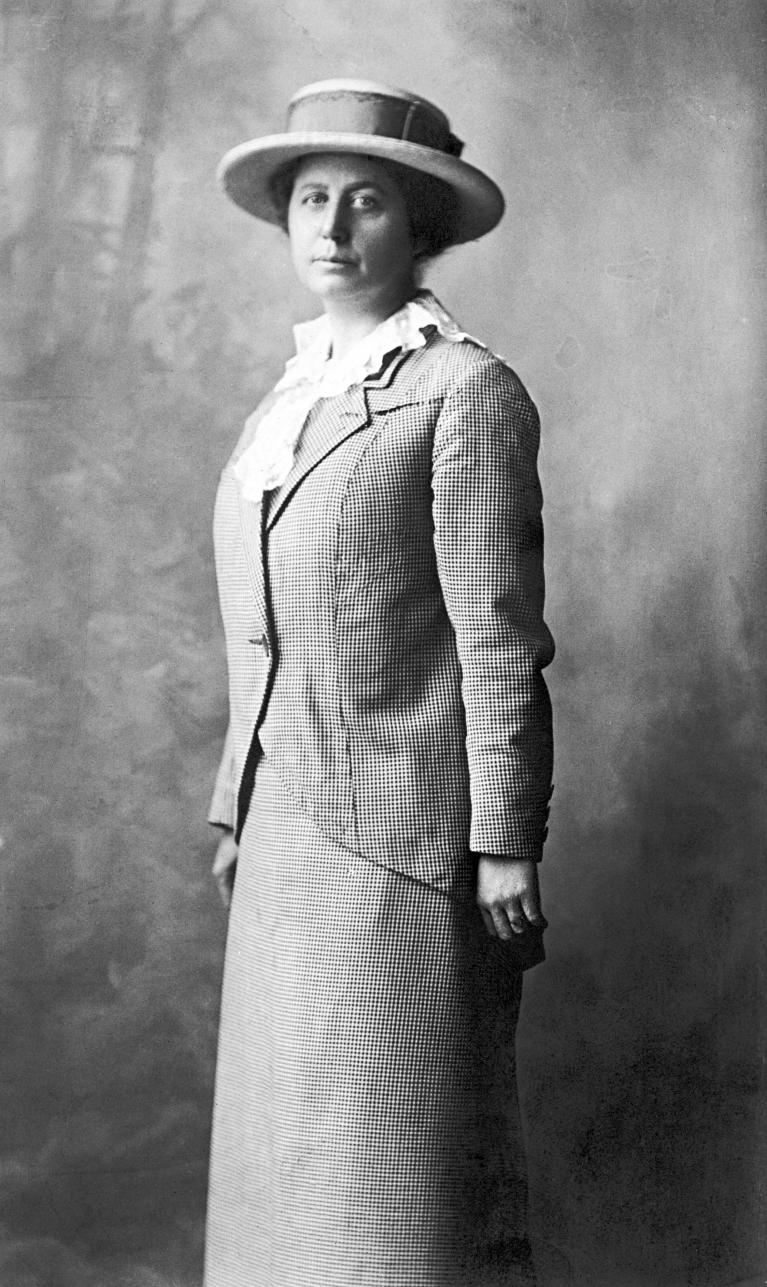Doctor, Women’s Rights Activist, Radical
By Katie Woods, Digital Public Historian
Dr. Marie Equi spent decades providing medical care to mostly working class women and children. A firebrand who went by “Doc,” Dr. Equi dedicated her life to numerous social and political movements.
In 1872, Marie Diana Equi was born to immigrant parents in New Bedford. Her mother, Sarah Mullins Aque*, came from economically depressed Ireland, while her father, Giovanni (John) Aque, had fled Italy’s papal rule. Both parents worked in the local textile industry.
From an early age, Marie saw the impact of and need for medical care. Three of her siblings and several cousins died from various illnesses. She herself suffered a bout of tuberculosis, for which she sought respite in Florida.
Marie had a sporadic education growing up due to her responsibility to contribute to family wages. She dropped out of New Bedford High School to start working in the textile mills. She later briefly attended Northfield Seminary for Young Ladies.
After living with her father’s family in Italy for a few years, Marie Equi returned to the United States in 1892. Instead of staying in Massachusetts, she moved west to Oregon to join her childhood friend, Bessie Holcolm. Living with Holcolm, Equi decided to go to medical school. She first attended Physicians and Surgeons Medical College in San Francisco and moved back to Oregon when the University of Oregon began admitting women. She received her medical degree in 1903 and quickly established herself as a doctor for working class women and children.
Dr. Equi always provided help to those who needed it. As a newly minted physician, Equi volunteered to join the “Oregon Doctor Train” to help victims of the San Francisco earthquake. For this work she received a special recognition from President Theodore Roosevelt. Dr. Equi also helped those closer to home in her practice. Believing that women should have the right to choose when they got pregnant, she advocated for access to birth control and provided women with abortions.
Dr. Equi lived her life openly as a lesbian. In 1906, Equi began a long-term relationship with heiress Harriet Speckart. They adopted a daughter, Mary, in 1915. Even when they were no longer in a relationship, they co-parented Mary until Speckart’s death in 1927. Dr. Equi had several other relationships throughout her life, including with Irish nationalist and journalist Katherine “Kitty” O’Brennan and possibly birth control activist Margaret Sanger.
During the early 1900s, Dr. Equi participated in several movements, including the Progressive and women’s suffrage movements. She most notably led the 1912 “Votes for Women” march in Oregon.
The 1913 Oregon Packing Company fruit cannery strike proved a turning point in Dr. Equi’s radicalization. Seeing women canners on strike for better pay and working conditions, Dr. Equi quickly joined their efforts. She was arrested and jailed for her fierce defense and activism on the part of these women, for which she declared:
I started in this fight a Socialist, but now I am an anarchist. I’m going to speak when and where I wish. No man will stop me. The first man who touches me will die a slow, lingering death.”
In her new-found militancy, Dr. Equi became more involved in labor and anti-capitalist movements. She worked with Industrial Workers of the World (IWW) to advocate for better conditions for workers, forming a key alliance and friendship with IWW leader Elizabeth Gurley Flynn. Dr. Equi also campaigned with and developed a relationship with Margaret Sanger. She helped write and edit Sanger’s “Family Limitations booklet,” a 1916 book on birth control and family planning.
Dr. Equi’s protests eventually caught up to her. During World War I, she campaigned against war preparedness and US imperialism in Latin America and the Caribbean. On June 30, 1918, federal agents arrested Dr. Equi under the new Sedition Act, which prohibited anti-government rhetoric. During a trial a few months later, Equi was found guilty and sentenced to three years in prison in California. Leaving for transfer to San Quentin prison on October 17, 1920, she reportedly said, “I’m going to prison smiling. But I am not through. I shall keep on fighting until I die.”
Dr. Equi’s life drastically changed after her 10 months in prison. She no longer played an active role in radical politics and focused mainly on her practice. Dr. Equi's last known public appearance seems to have occurred at a dock strike in 1934. However, she remained a figurehead for many anarchists and labor activists. When the Portland Police Department didn’t include her on a list of anarchists, Dr. Equi threatened to sue them if they did not amend their list to include her as “Dr. Marie Equi, Queen of the Bolsheviks.” At age 80, Dr. Marie Equi died on July 12, 1952.
*While living in New Bedford, the Equi family changed their last name to “Aque,” possibly to quell anti-Italian immigrant sentiment. Marie Equi used her family’s original spelling for her last name.
Bibliography
“Dr. Marie Equi.” National Park Service. Last Updated December 1, 2021. Accessed May 19, 2024.
Helquist, Michael. Marie Equi: Radical Politics and Outlaw Passions. Corvallis, Oregon: Oregon State University Press, 2015.
Jelsing, Nadine. “Physician, lesbian, radical labor activist – the passions of Portland’s Dr. Marie Equi.” OPB. March 13, 2023. Accessed May 2024.
Krieger, Nancy. “Queen of the Bolsheviks: The Hidden History of Dr. Marie Equi.” Radical America vol 17, no. 5. September-October, 1983.
“Lingering Death is Promised to any who stops her speaking.” Oregon Daily Journal, July 17, 1913.
Schechter, Patricia. “Biographical Sketch of Marie Diana Equi.” In Biographical Database of NAWSA Suffragists, 1890-1920. Accessed May 2024.
Additional Resources
Biggers, Jeff. “Oct. 17, 1920: Marie Equi Jailed.” Zinn Education Project: This Day in History. Accessed May 2024.
“Dr. Marie Diana Equi.” Changing the Face of Medicine, National Institute of Health. Accessed May 2024.
Helquist, Michael. "Marie Equi (1872 - 1952)." Oregon Encyclopedia, Oregon Historical Society. Last updated September 6, 2022. Accessed June, 2024.
Helquist, Michael. "'Criminal Operations': The First Fifty Years of Abortion Trials in Portland, Oregon." Oregon Historical Quarterly 116:1 (Spring 2015): 6-39.
“Marie Equi.” Oregon Experience, PBS. Aired March 13, 2023.


